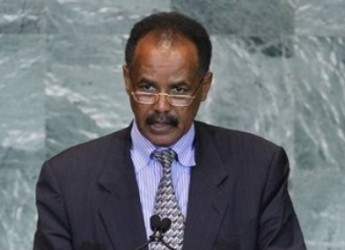Eritrea seeks to facilitate talks between Sudan and SPLM-N rebels
August 19, 2012 (KHARTOUM) – The Eritrean government has launched an initiative to bridge gaps between the Sudanese government and the Sudan People’s Liberation Movement North (SPLM-N) in order to end the South Kordofan and Blue Nile conflicts, a news report said.

Sudanese defence minister, Abdel-Rahim Hussein, travelled to Asmara on Friday to discuss the initiative with the Eritrean leader.
The Sudanese government and the rebel groups are holding a difficult indirect process in Addis Ababa as the two parties disagree on everything. Their negotiating teams nonetheless, inked a humanitarian deal brokered by an African Union (AU) mediation led by the former South African president Thabo Mbeki.
But the parties still diverge over many aspects related to the implementation of these issues.
With regard to the political track, the SPLM-N posed a number of conditions, including the release of political leaders, reinstatement of its chairman Malik Agar in his position of Blue Nile governor and to open this process to include Darfur rebels.
Khartoum, on the other hand, continues to express some reservations over the framework agreement which is rejected by president Omer Al-Bashir after its signing by his assistant Nafie Ali Nafie on 28 June 2011.
The newspaper further said that Malik Agar and SPLM-N Secretary General Yasir Arman have already met with Eritrean leader in Asmara.
Eritrea also reassured the parties that its initiative would not hamper the ongoing negotiations taking place in Addis Ababa.
The talks are held under the UN resolution 2046, which provides that the process concerns the Blue Nile and South Kordofan states. The Security Council decision also indicates that negotiations are based on the framework agreement.
(ST)
